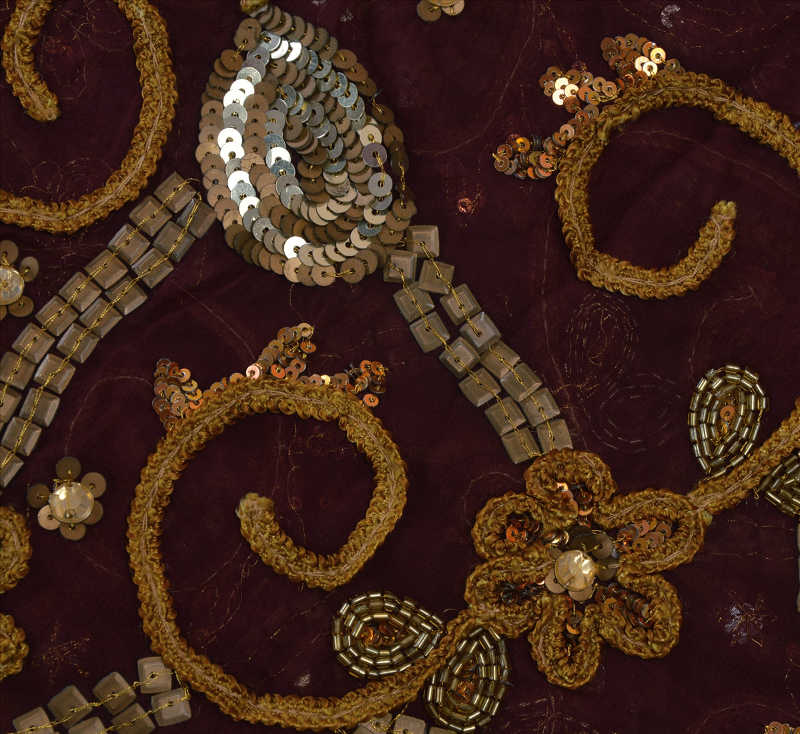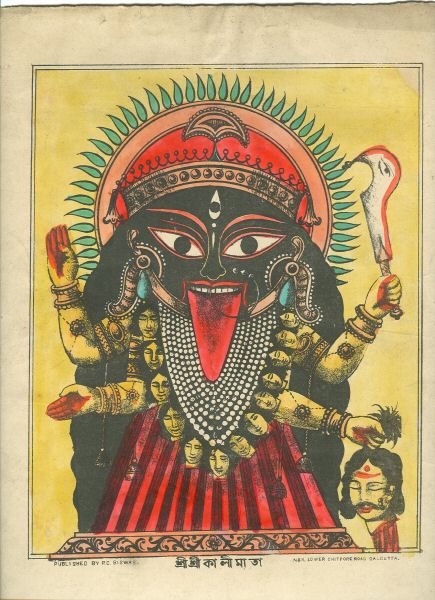===
693,
4
===

=== |
 |
niimchah : 'A small scimitar, a short sword, or bow, &c.; a hanger; a dagger'. (Platts p.1169)
saj : 'Preparation; dress, ornament, decoration; appearance, shape'. (Platts p.642)
;ha;zar : 'Caution, wariness, vigilance, care; prudence; —fear'. (Platts p.475)
FWP:
SETS
MOTIFS == SWORD
NAMES
TERMS == DASTANIs it perhaps the pleasure of understatement that the verse offers? The lover is approached by a terrifying, wild-looking creature apparently intent on murder-- and he feels perhaps only a bit of 'caution' or 'wariness', and he calls her 'mischievous one' as though he's determined to believe that it's all just a charming, coquettish game.
But in fact, it's hard to avoid thinking of Durga/Kali-- and who's to say that Mir didn't intend something of the kind?
